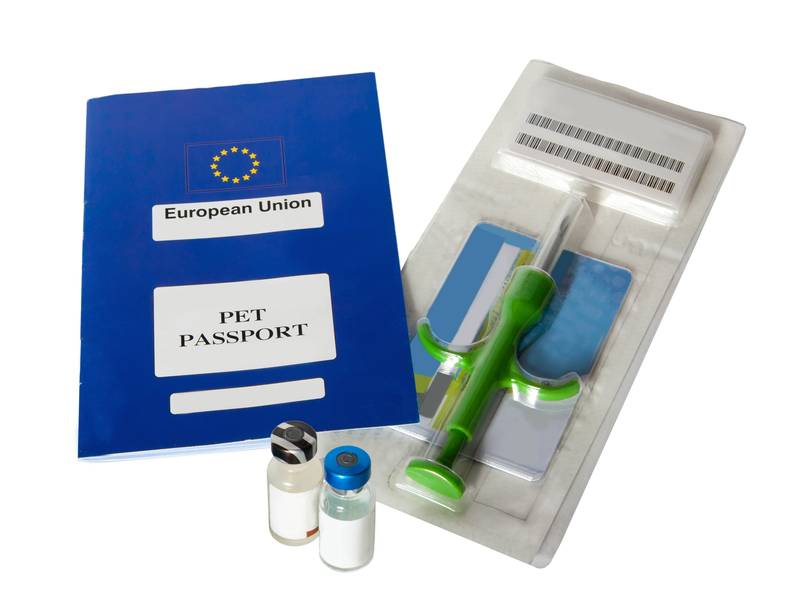The risks of moving a piano yourself and safer alternatives
Posted on 30/05/2025
The Risks of Moving a Piano Yourself and Safer Alternatives
When it comes to relocating any musical instrument, pianos are in a league of their own. Whether it's a cherished family heirloom, a vintage grand piano, or a modern upright masterpiece, moving a piano is an intricate and challenging task. Many homeowners contemplate handling the move themselves to save money, but the risks associated with a DIY piano move can be considerable. This comprehensive guide delves into the dangers of moving a piano on your own as well as safer, professional alternatives for stress-free piano relocation.
Understanding the Challenges of Piano Relocation
Pianos are not just heavy and awkwardly shaped--they are also extremely delicate. A single piano can weigh anywhere from 300 to over 1,200 pounds, with grand pianos often topping the scale. Inside, thousands of moving parts are tuned for perfect sound; just a small jolt can upset their delicate balance.
Why Are Pianos So Difficult to Move?
- Sheer Weight: Even a small upright piano is heavier than most people expect. The concentrated weight makes them hard to lift and maneuver.
- Bulkiness: Pianos seldom fit neatly through doors or around corners, requiring precise navigation.
- Delicate Inner Mechanisms: Any bump or drop can damage the intricate inner works, detuning or breaking vital components.
- Exterior Finish: The beautiful wood or lacquered finish is prone to scratches and dents during transport.
These factors mean that moving a piano yourself is not as simple as recruiting friends and renting a truck.

What Are the Risks of Moving a Piano Without Professional Help?
Attempting a DIY move exposes you, your helpers, your home, and your piano to a range of significant risks. Let's explore them in detail.
1. Injury to Yourself or Others
Pianos are notorious for causing injuries during moves. Lifting such a massive object without experience can lead to:
- Back and muscle strains from improper lifting
- Crushed fingers and toes if the piano slips or falls
- Slips, trips, and falls, especially on stairs or wet surfaces
- Severe accidents--in worst-case scenarios, a piano could fall on someone, leading to broken bones or more serious harm
2. Damage to Your Piano
It takes years for professionals to master the art of safe piano moving. Inexperienced handling can result in:
- Broken keys, pedals, or strings
- Cracked casing or frame
- Internal dislodgement of the piano's action or soundboard
- Irreparable surface damage that devalues the instrument
Even minor bumps can cause costly repairs or irreversible piano damage.
3. Potential Damage to Your Home
The sharp edges and cumbersome size of a piano mean it's easy to scuff walls, scratch floors, or even damage stair railings and door frames during a move. Repairing this collateral damage can be expensive and time-consuming.
4. Liability and Insurance Concerns
If you ask friends or family to help and someone is injured, you could be held legally responsible for their medical bills or lost wages. Standard home insurance rarely covers damage caused during a DIY move, leaving you out of pocket for both injuries and property damage.
5. Transportation Issues
Even if you manage to get the piano out of the house unscathed, improper loading, insufficient strapping, or poor vehicle choice can cause your piano to shift, fall, or tip during transit.
Piano Types and Their Specific Moving Risks
- Upright Pianos: Tall, narrow, and very top-heavy, increasing the risk of tipping.
- Grand and Baby Grand Pianos: Large and awkwardly shaped, often requiring disassembly and specialized equipment.
- Digital Pianos: Lighter, but still contain sensitive electronics that can be easily damaged.
What Equipment is Needed for Safe Piano Moving?
Most individuals don't have access to the professional-grade tools required for safe piano relocation. You'll need:
- Piano dollies or skids designed for specific piano types
- Heavy-duty moving straps and harnesses
- Protective padding and blankets
- Plywood sheets for ramps and floor protection
- Disassembly tools for legs, lids, and pedals (in grands)
- Vehicle with lift gate or ramp strong enough for a piano's weight
Without proper equipment, the risks involved in moving a piano are magnified dramatically.
Real Costs: DIY Piano Move vs. Professional Piano Moving Services
Many opt for a DIY move to cut costs, but it's important to consider the true expenses involved:
- Rental fees for moving equipment and trucks
- Sorry, potential medical bills or repair costs if something goes wrong
- Possible damage to your instrument or home
- Risk of needing to hire repair or tuning services post-move
Compare this to the predictable, often insured flat rates offered by professional piano movers, and the initial savings of a DIY approach may disappear.
Safer Alternatives: The Benefits of Hiring Professional Piano Movers
If you're serious about protecting your piano, your home, and your health, hiring experienced piano movers is the safest bet. Here's why:
1. Expertise and Experience
Professional piano moving companies have training in handling all piano types. They understand the intricacies of safe disassembly and reassembly, lifting, carrying, and transporting these large instruments.
2. Specialized Equipment
Pros come equipped with everything from piano boards and dollies to ramps, lifting straps, and sturdy padding. This minimizes risks of shocks and jostling that can damage your instrument.
3. Safety First
Professional movers employ safe lifting techniques and have crews strong and experienced enough to manage heavy loads without injury.
4. Insurance Protection
Reputable piano movers are fully insured. Should the unlikely occur and your piano or property is damaged, you are covered.
5. Stress Reduction
Letting someone else take responsibility for the risks and challenges means less anxiety and fewer things to worry about on moving day. Focus on your new home and enjoy your piano again, fully intact.
How to Choose a Reliable Professional Piano Mover
Not every moving service has the skills or equipment for pianos. To find a trustworthy partner:
- Check for genuine customer reviews and testimonials.
- Ask about experience with your specific type of piano.
- Make sure they carry adequate insurance coverage.
- Request a clear, written estimate - no hidden fees.
- Confirm they use proper piano moving equipment and techniques.
Frequently Asked Questions: Self-Moving and Professional Piano Transport
Can I move a spinet or digital piano myself?
While smaller and lighter pianos are less risky to move, even a spinet can be awkward and is still susceptible to internal damage if dropped or bumped. Always use proper lifting techniques, or better yet, enlist professional help to ensure safety.
What if I don't want to pay movers?
Consider at least hiring a specialty moving company for the piano and handling other furnishings yourself. The cost of repairing piano damage or personal injury can far exceed moving costs.
How do professional movers protect a piano during transit?
Professional piano movers wrap the instrument in thick blankets, secure it to a piano board or dolly, carefully maneuver it through the home, and use ramps or lift gates to load it safely into a padded truck compartment.
Should I tune my piano after a move?
Absolutely. Even with the most careful move, minor detuning is almost inevitable due to vibrations and changes in humidity. Schedule a professional piano tuning a week or two after settling the piano in its new environment.

Tips to Prepare for a Professional Piano Move
- Clear all paths: Ensure hallways and stairways are unobstructed for safe and quick access.
- Remove decorative items and sheet music: Take out anything loose inside or on top of the piano.
- Secure pets and children: Keep them away from moving areas for their safety and the movers' ease.
Conclusion: The Right Way to Move Your Piano
The lure of DIY can be strong, but the risks of moving a piano yourself--from serious injury to irreparable damage--just aren't worth it. Pianos represent a significant financial and sentimental investment; treat yours with the respect and care it deserves. Engaging professional piano movers not only ensures a safe, smooth relocation process but protects your precious instrument for generations to come. Consider the safer, stress-free alternative for your next piano move and enjoy peace of mind knowing your music will play on long after you've settled into your new home.
Your piano deserves the best--don't risk its future with a DIY move. Trust the experts for your next piano relocation.
Latest Posts
Safeguard Your Sofa: Essential Tips for Long-Term Preservation
Tips for Seamlessly Moving Your Bed and Mattress
Master the art of cleaning your home before moving out



